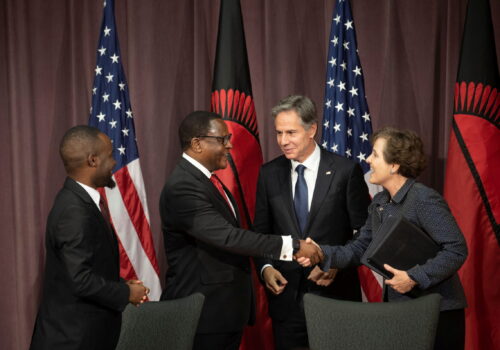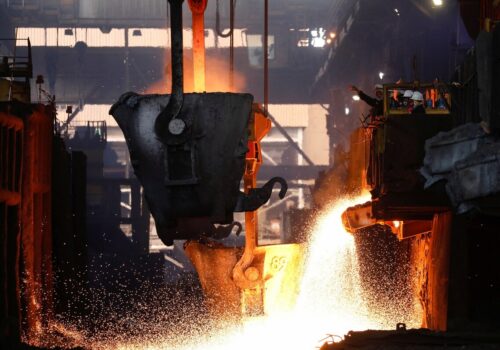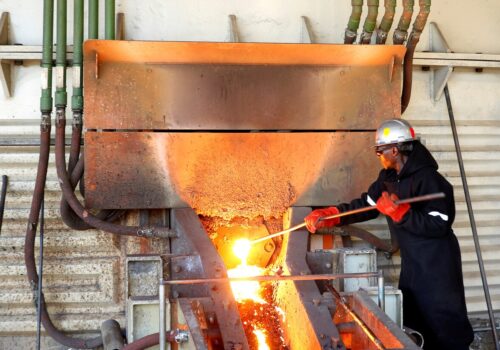Keeping China at bay and critical minerals stocked: The case for US-Africa defense collaboration
The United States is ill prepared to confront the challenges of an increasingly hostile global strategic environment. A coordinated coalition of adversarial states is working to dismantle the US-led global order, seeking to replace it with one defined by their ambitions and autocratic principles. At the forefront of this effort is China, which is rapidly accelerating its military capabilities and expanding its defense industrial base (DIB) to field sophisticated weapons systems designed to deter the United States globally and secure its goal of national rejuvenation. Aligned with China are Russia, Iran, and North Korea—forming an increasingly unified axis of authoritarians steadily advancing toward this objective. Compounding these challenges are increasingly frayed traditional US security alliances, notably in Europe, that leave the United States further exposed.
The most effective strategy to contend with this evolving threat landscape is through robust preparedness—both immediate and long term. Against this background, US and allied attention has increasingly turned to Africa. Africa holds one-third of the world’s known mineral reserves, including 80 percent of platinum and chromium, 47 percent of cobalt, and 21 percent of graphite.
Of the fifty minerals identified as critical by the US Geological Survey (USGS), thirty-two are found in Africa. US policymakers have therefore begun to explore partnerships with African countries to secure these resources. Yet, despite several promising initiatives, the United States still lacks a coherent and comprehensive policy for engagement—particularly one that can compete with the entrenched influence of the axis of authoritarian states, notably Russia and China, in the continent’s mining industry.
By supporting African nations in the development of their domestic mineral processing capabilities, the United States could enable them to retain a greater share of their mineral wealth and build self-sufficiency in defense. Such efforts could also diminish China’s influence across the continent. For the United States, developing these capabilities could secure a reliable source of critical minerals.
This report begins to lay the groundwork for such an effort by:
- Identifying the defense capabilities the United States should prioritize to remain competitive in the evolving global strategic environment and the critical minerals necessary to support them.
- Charting Africa’s critical mineral resources relevant to US defense needs and assessing the shifting defense postures of African nations, particularly where the development of their weapons systems and security objectives aligns with US interests.
- Underscoring the importance of US support for building Africa’s mineral processing infrastructure, while addressing the structural barriers that have hindered progress so far.
- Advancing targeted recommendations for US policymakers to operationalize such efforts and redefine US-Africa relations for today’s global challenges.
View the full report
Related content
Explore the program

The Africa Center works to promote dynamic geopolitical partnerships with African states and to redirect US and European policy priorities toward strengthening security and bolstering economic growth and prosperity on the continent.
Image: An F-35A Lightning II from the USAF Aerobatic Team stands by ahead of its performance at the 88th anniversary of the Royal Thai Air Force (RTAF) at Wing 6, Royal Thai Air Force Base, on March 8, 2025, in Bangkok, Thailand. (Photo by Teera Noisakran/Sipa USA)


